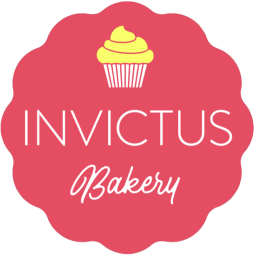Aphasia is an acquired communication disorder that affects a person’s ability to use and understand written or spoken language. According to the National Institute on Deafness and Other Communication Disorders, 180,000 people are diagnosed with aphasia every year in the United States. Aphasia happens when the areas of the brain (usually in the left hemisphere) responsible for language have been injured. Most commonly, the injury occurs from sustaining a stroke or head injury. Aphasia varies from person to person in severity and type, depending on the location and extent of brain damage.
Common Causes
- Stroke
- Traumatic brain injury
- Brain tumors
- Infections that affect the brain
- Neurodegenerative conditions
Signs and Symptoms
Each person with aphasia will present with a different set of symptoms. Some people may be able to write but not speak, while others can follow speech but not produce it themselves. Consult a doctor if you have any questions regarding an aphasia diagnosis.
- Incomplete sentences
- Saying words that do not make sense or in the incorrect order
- Unable to produce the word they want.
- Unable to move the mouth to produce words
- Unable to understand what others are saying
- Trouble reading and comprehending written language
- Trouble with following directions
- Unable to name familiar items
Types of Aphasia
There are several types of aphasia, according to the location of the brain lesion. Depending on which aphasia an individual is diagnosed with depends on the differences they will have. There are also types of aphasias that are related to dementia, which are progressive and can worsen over time.
Broca’s Aphasia: Individuals with Broca's aphasia will have a hard time speaking, requiring a lot of effort and time. They are able to understand others, though long sentences can be more difficult for them to comprehend.
Wernicke’s Aphasia: These individuals will have a hard time understanding words that are being spoken to them and will also have trouble with producing sentences that make sense.
Conduction Aphasia: Conduction aphasia makes it difficult for individuals to produce the words they are thinking of. They know what they would like to say, but are unable to make the sounds.
Global Aphasia: Considered the most severe type of aphasia, these individuals have a hard time understanding and speaking written and spoken language. Global aphasia usually happens after a stroke.
Anomia Aphasia: Trouble finding the right words, especially nouns and verbs, in spoken and written language.
Transcortical (Sensory and Motor) Aphasia: There are two kinds of transcortical aphasia, motor and sensory. Transcortical sensory aphasia makes it difficult for an individual to understand language and will have some difficulties with reading and writing. Transcortical motor aphasia makes it difficult for an individual to speak. They may have a hard time getting the complete sentence out properly. They will also have issues with writing.
Subcortical Aphasia: Individuals with subcortical aphasia may speak faster, may have trouble remembering words, and following conversations.
Diagnosis
Aphasia is diagnosed through a combination of:
Neurological exams: There are multiple assessments such as the Boston Diagnostic Aphasia Examination, and the Western Aphasia Battery, which helps determine the type and severity of the aphasia, and determine a baseline for clinicians.
Imaging tests: MRI and CT scans are used to identify the location and extent of brain damage.
Speech Evaluations: A battery of tests to examine speaking, listening, reading, and writing capabilities.
Treatment
Many people will experience what is referred to as spontaneous recovery. This is where an individual regains lost abilities on their own, without any interventions. In addition to the brain recovering on its own, there are some interventions an individual can receive to help the recovery process.
- Speech Therapy: Individual and group speech therapy can help individuals relearn or build on their spoken language.
- Communication devices or apps: There are many devices that can help individuals communicate who have trouble speaking, check out our article about communication devices.
- Medications: There is not a specific medication that is used to treat aphasia. There are some medications that are being studied that may help increase blood flow and produce neurotransmitters, which may aid in recovery. Talk to your doctor about what is best for you.
- Noninvasive Brain Stimulation: Stimulating the brain can help increase brain activity and neuroplasticity. It is usually used in conjunction with speech therapy.
- Support groups: Being in a community who understands what having aphasia is like and the struggles that are faced on a daily basis can help make coping with the journey less overwhelming.
Recovery depends on the type of aphasia and is dependent on the person, cause, and overall brain functions.
Aphasia impacts all aspects of a person’s life, including their emotional well-being. Many people feel isolated and misunderstood, which can be frustrating. Advocacy, patience, and inclusive communication are needed to help build a more supportive environment for individuals with aphasia.
From professional therapy to community support, many tools exist to help rebuild communication and connection. Check out our interview with Dr. Kling, Ph.D, CCC/SLP.




